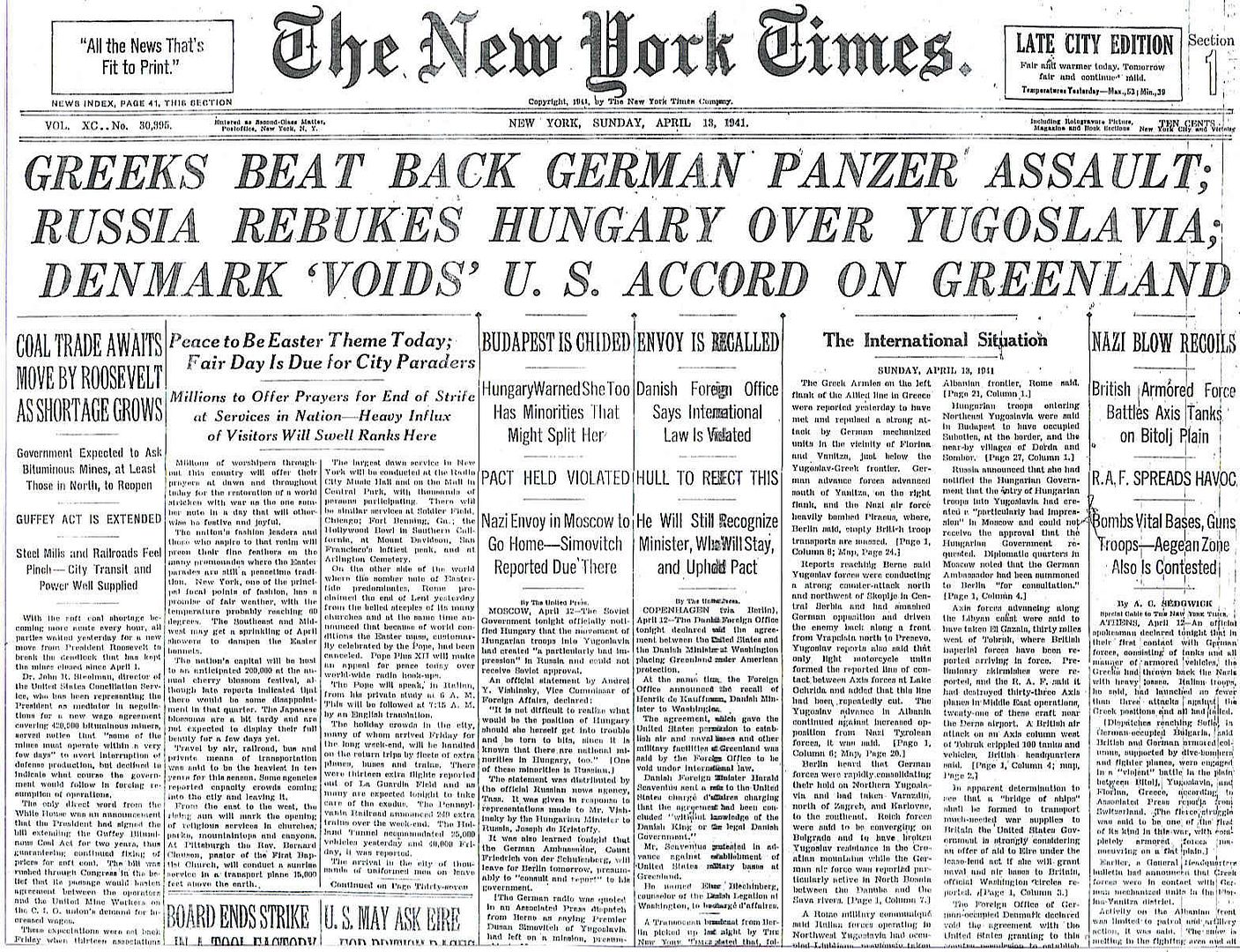
Posted on 04/13/2011 5:23:06 AM PDT by Homer_J_Simpson

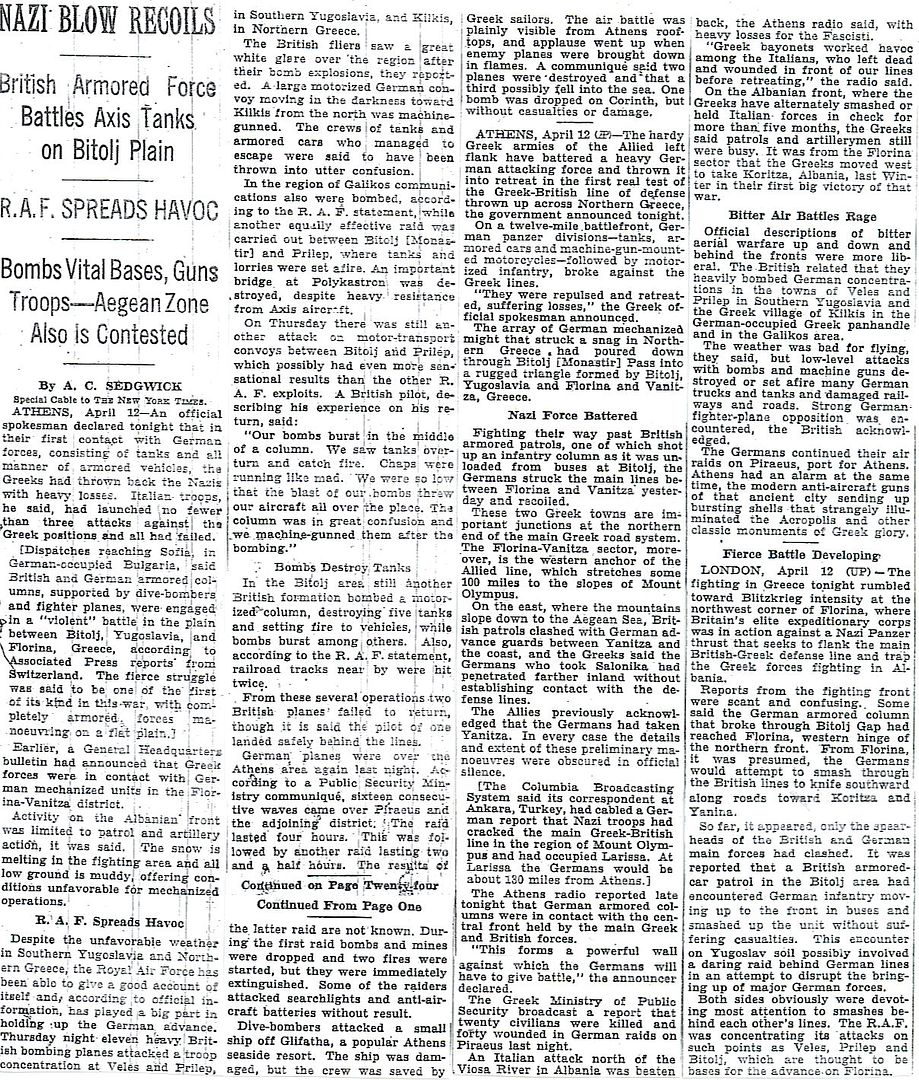
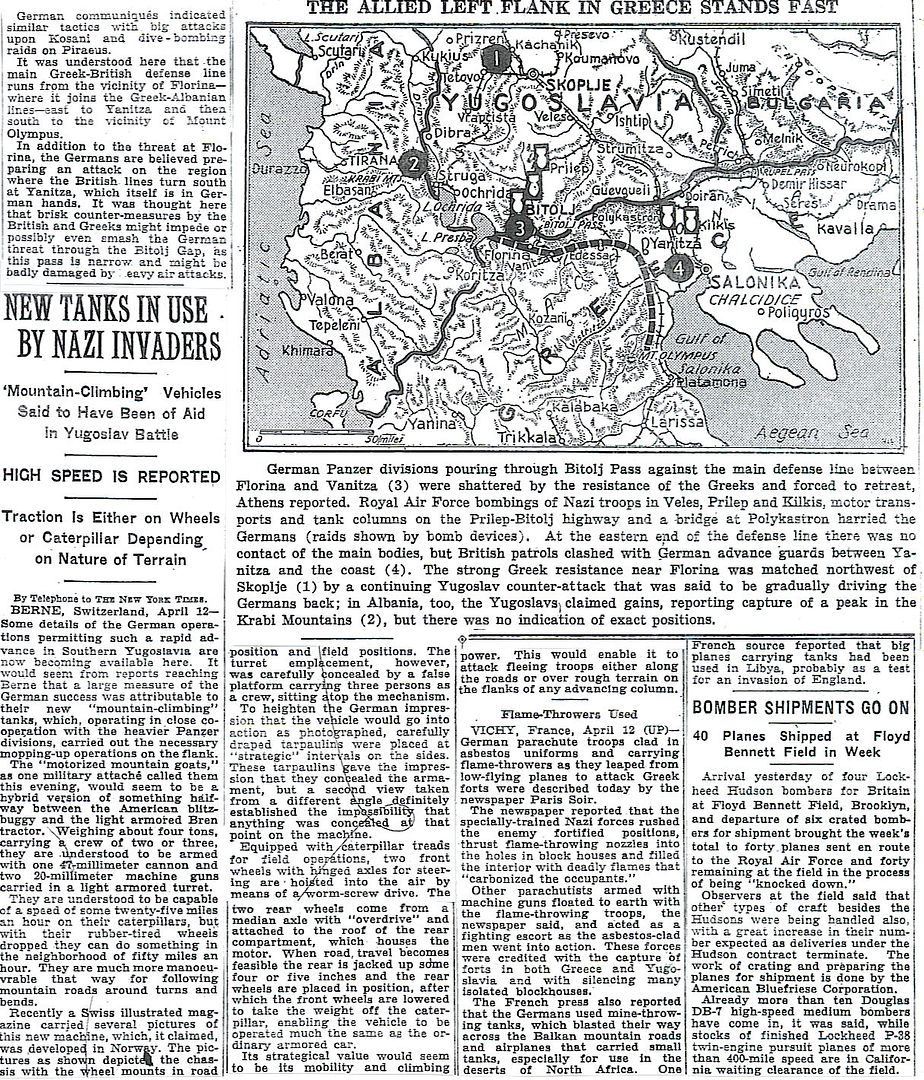
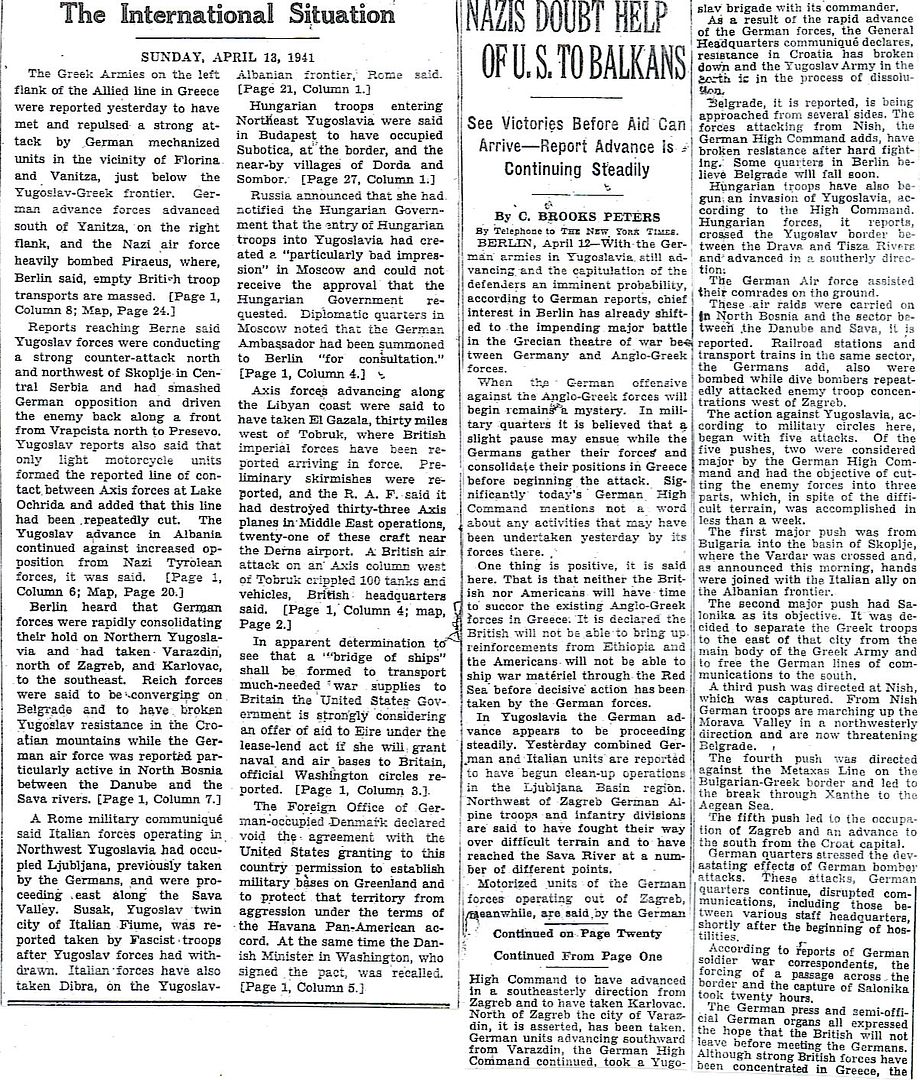
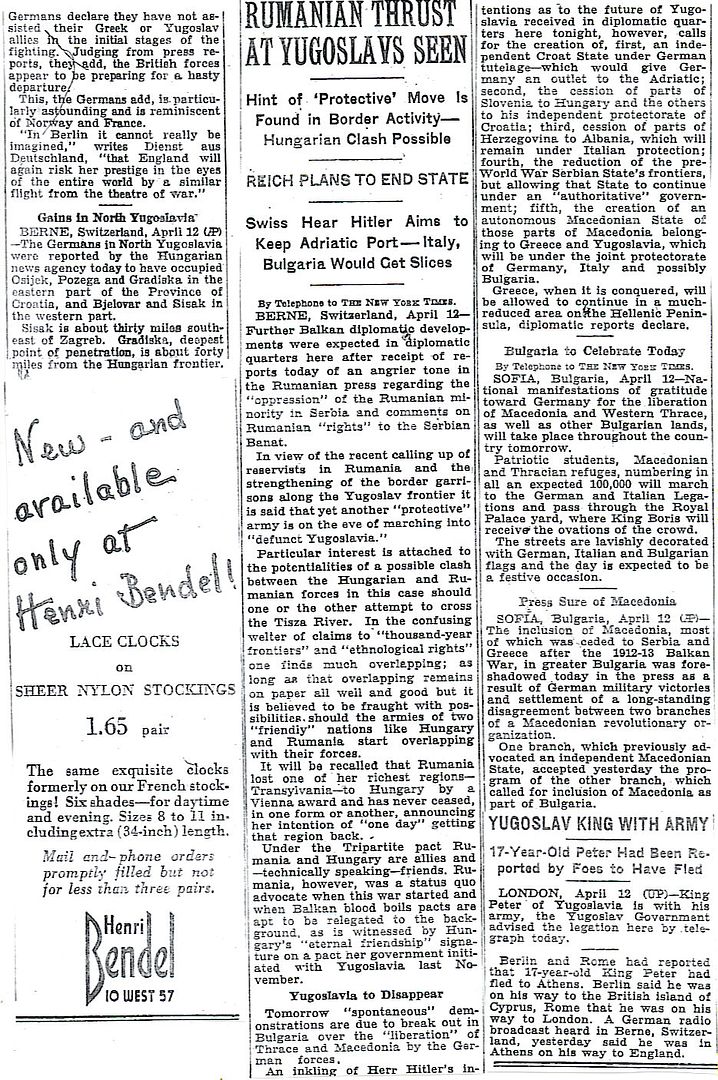
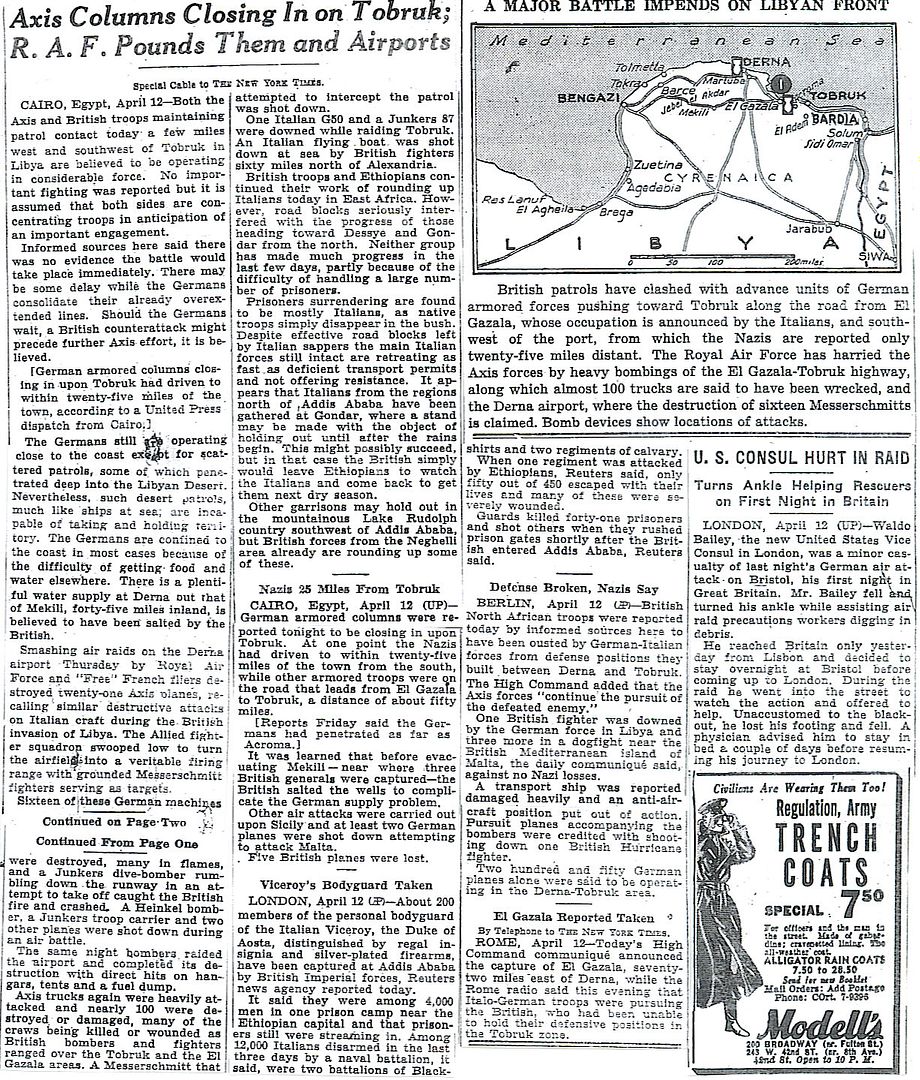
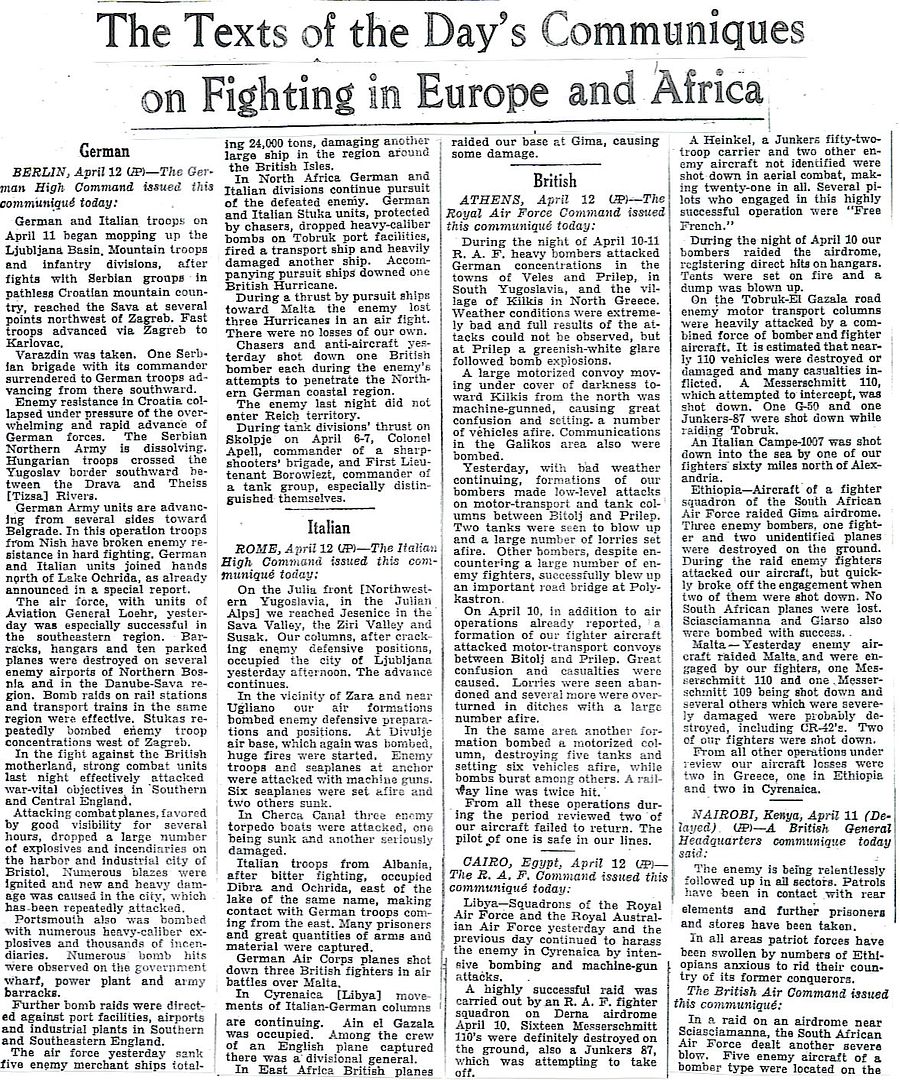
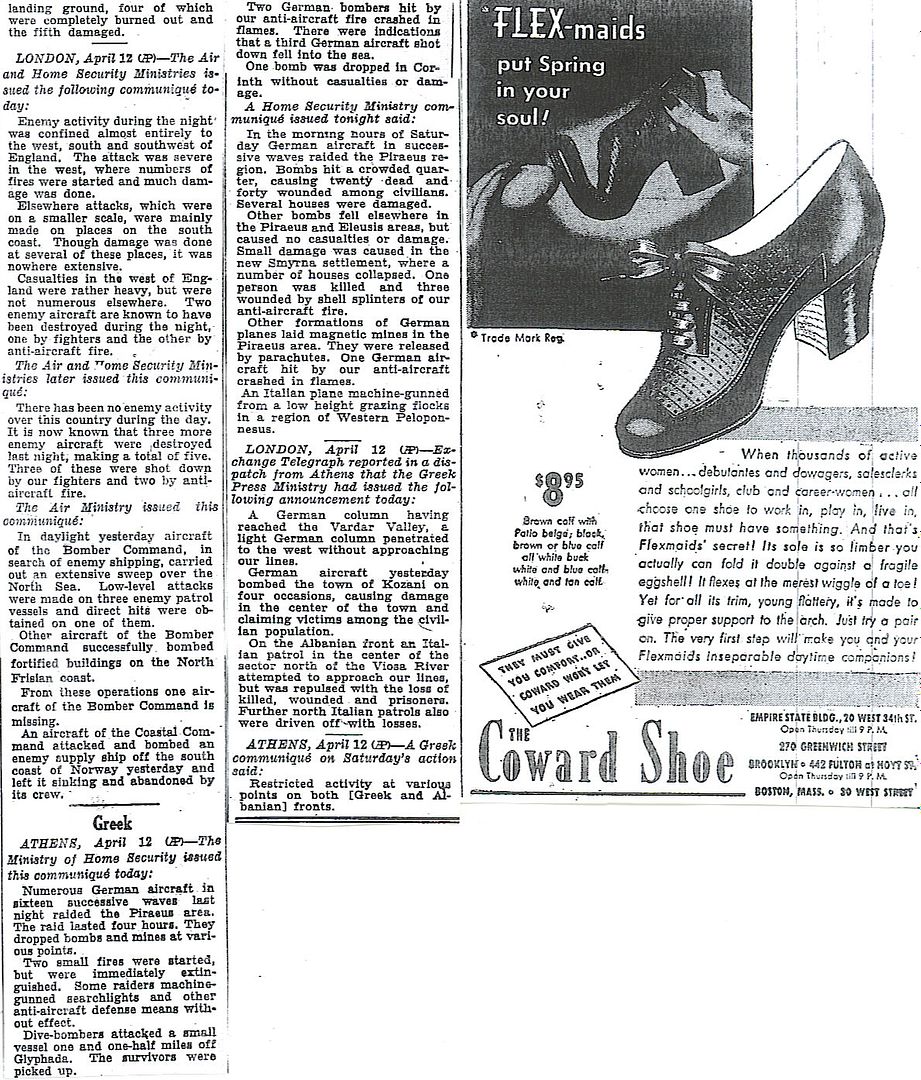
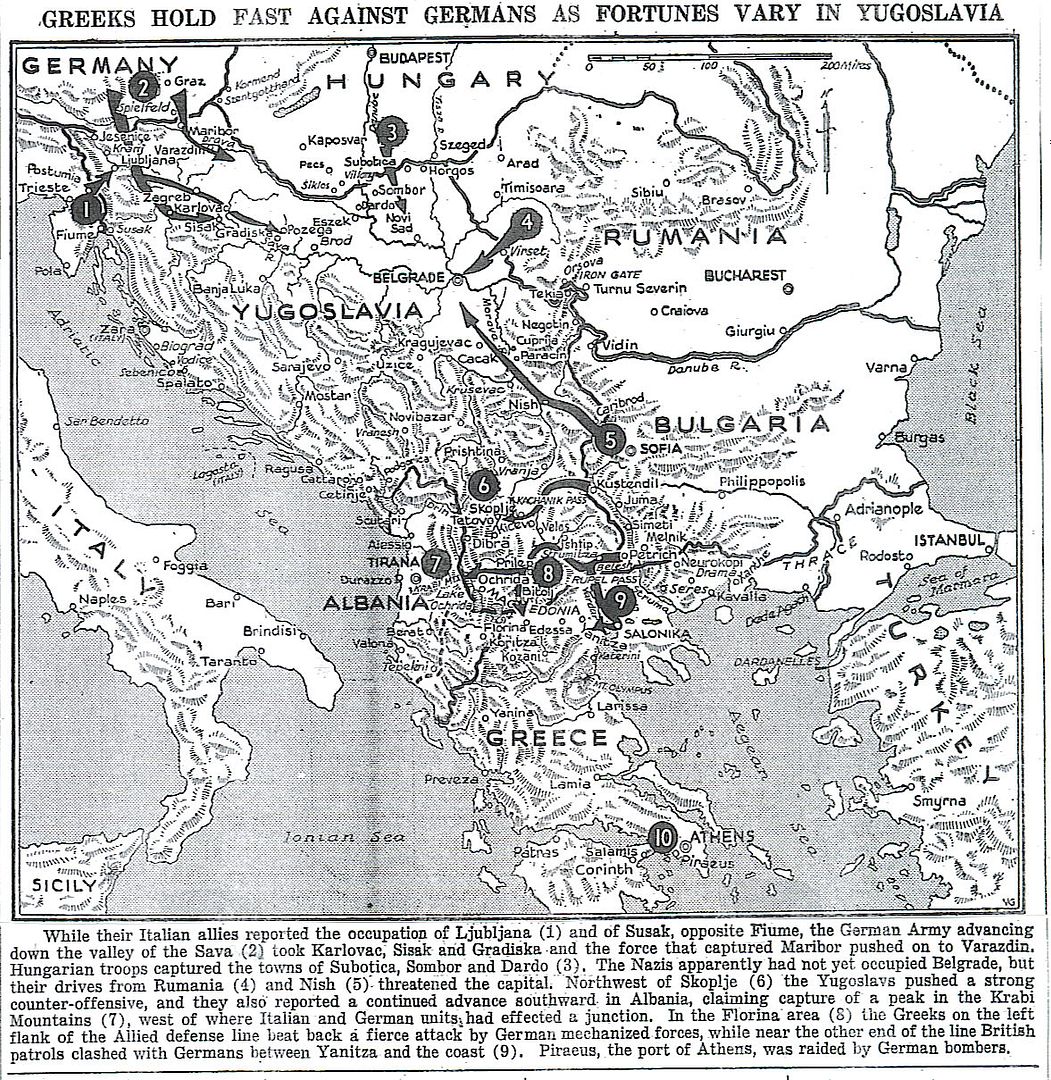
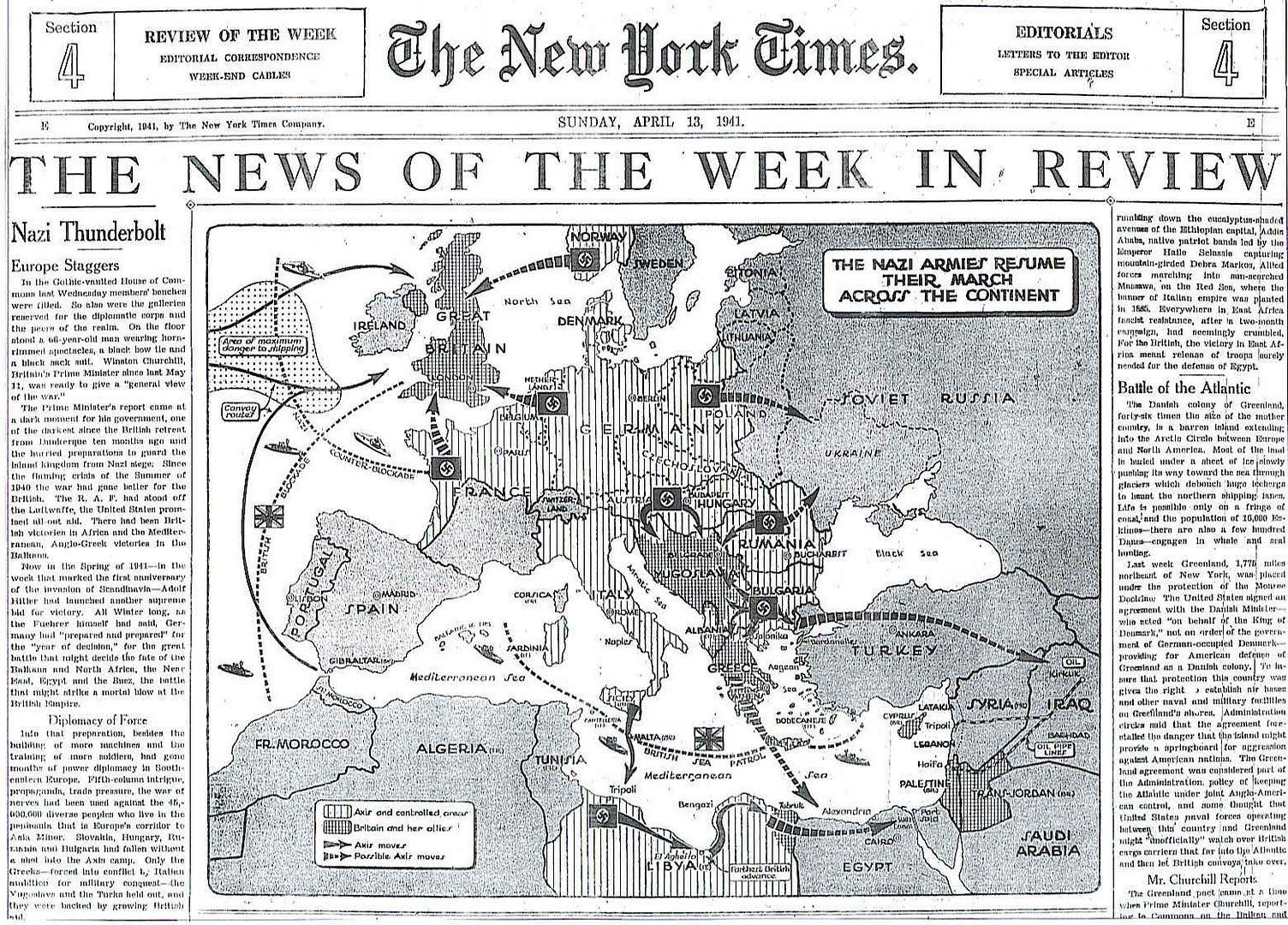
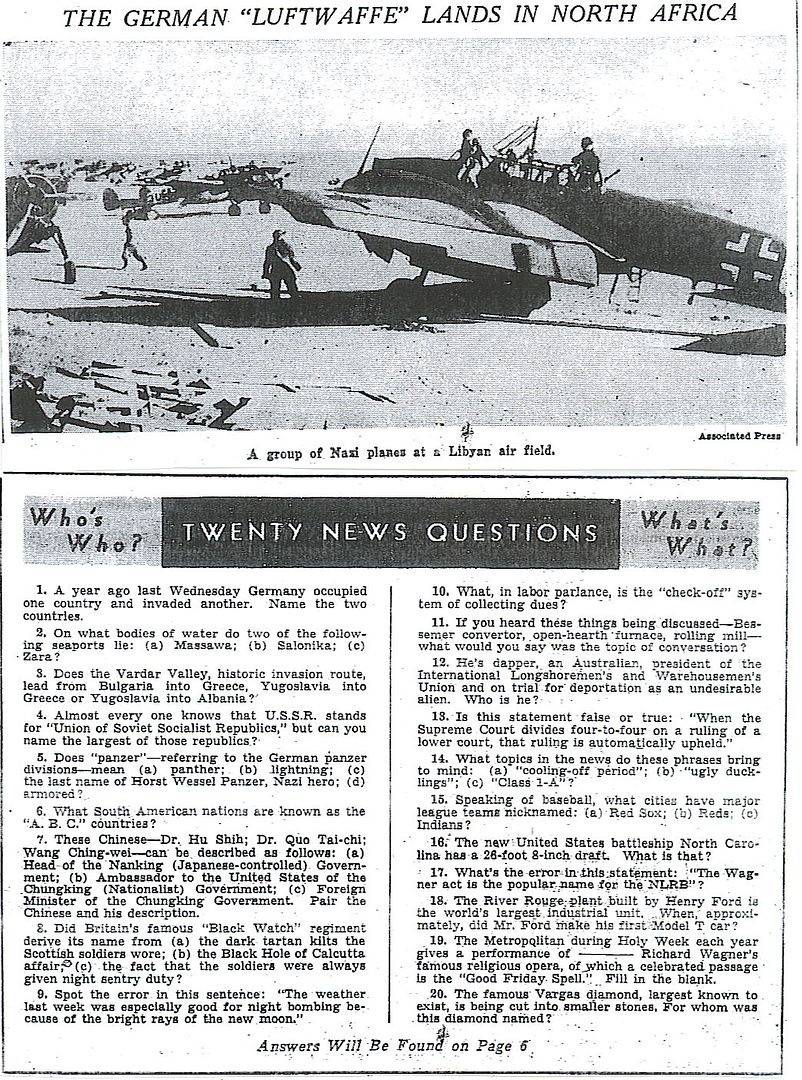
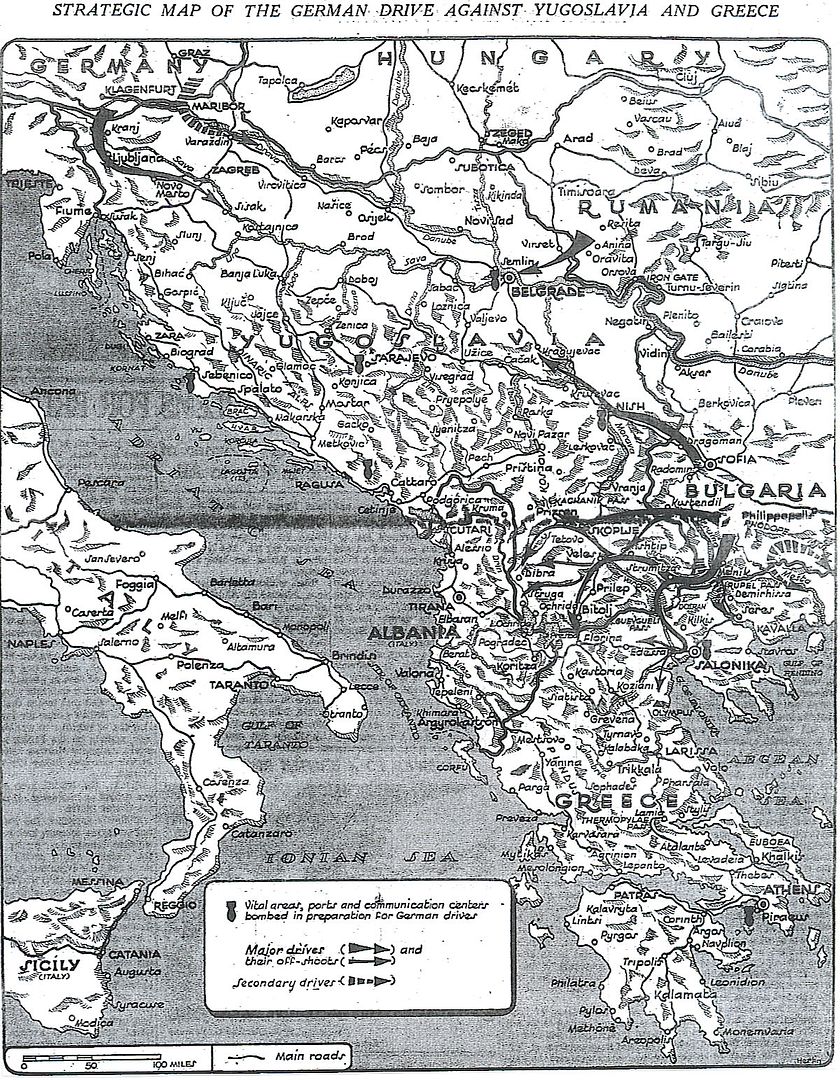
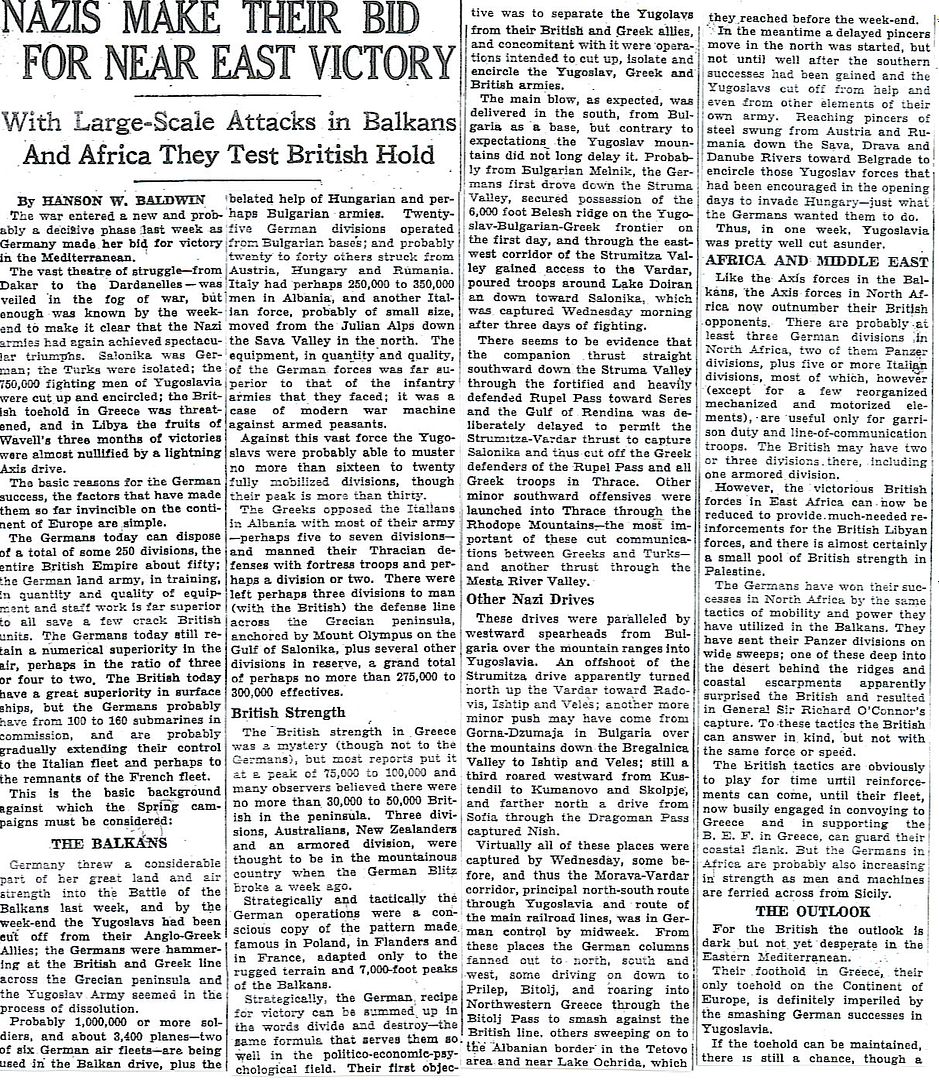
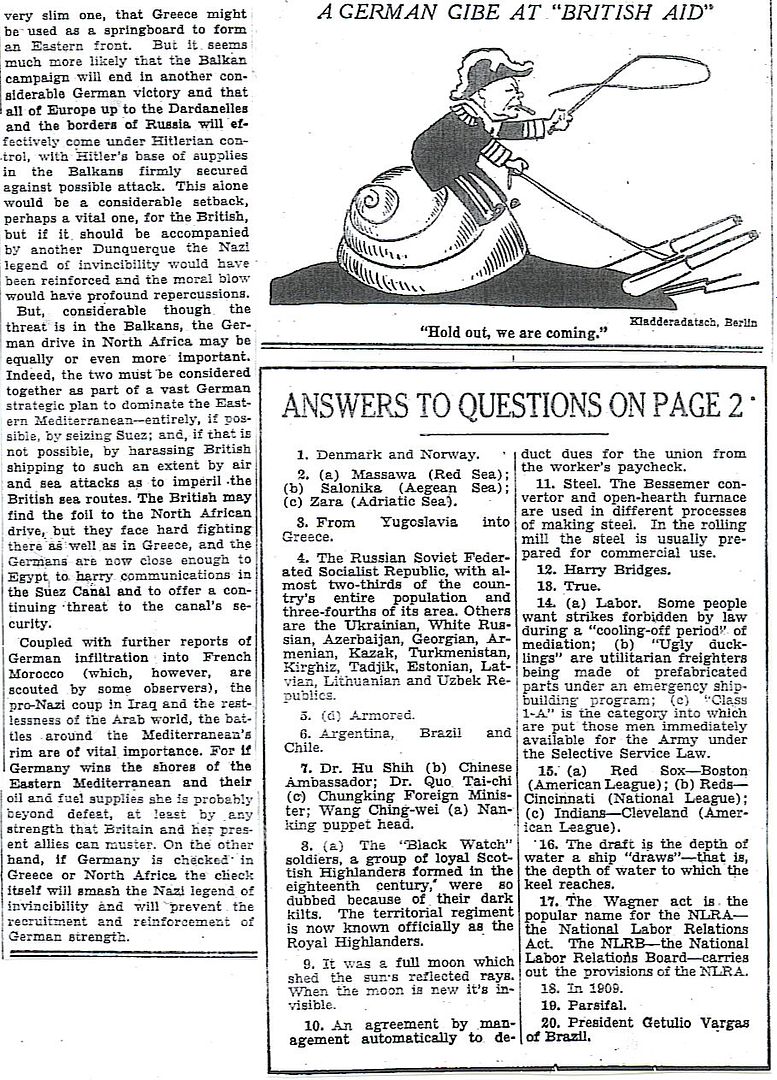

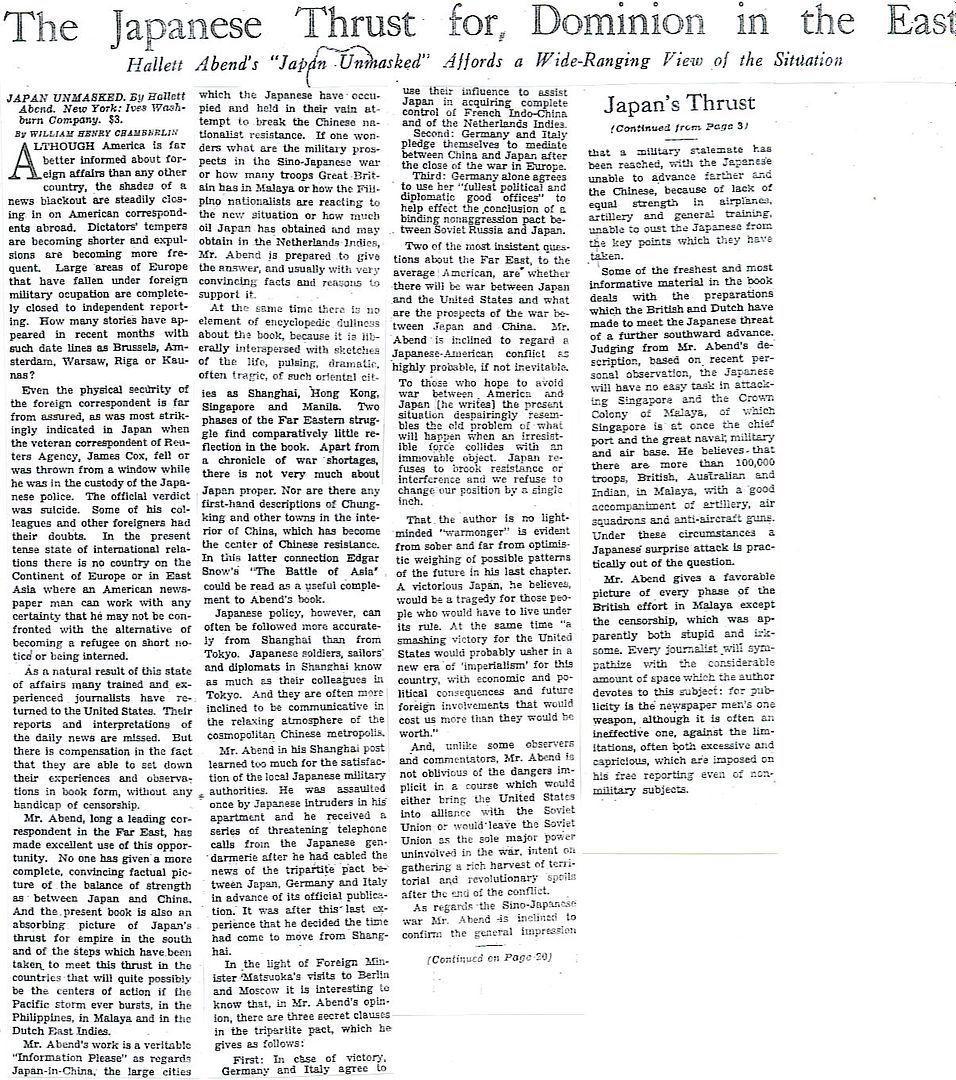
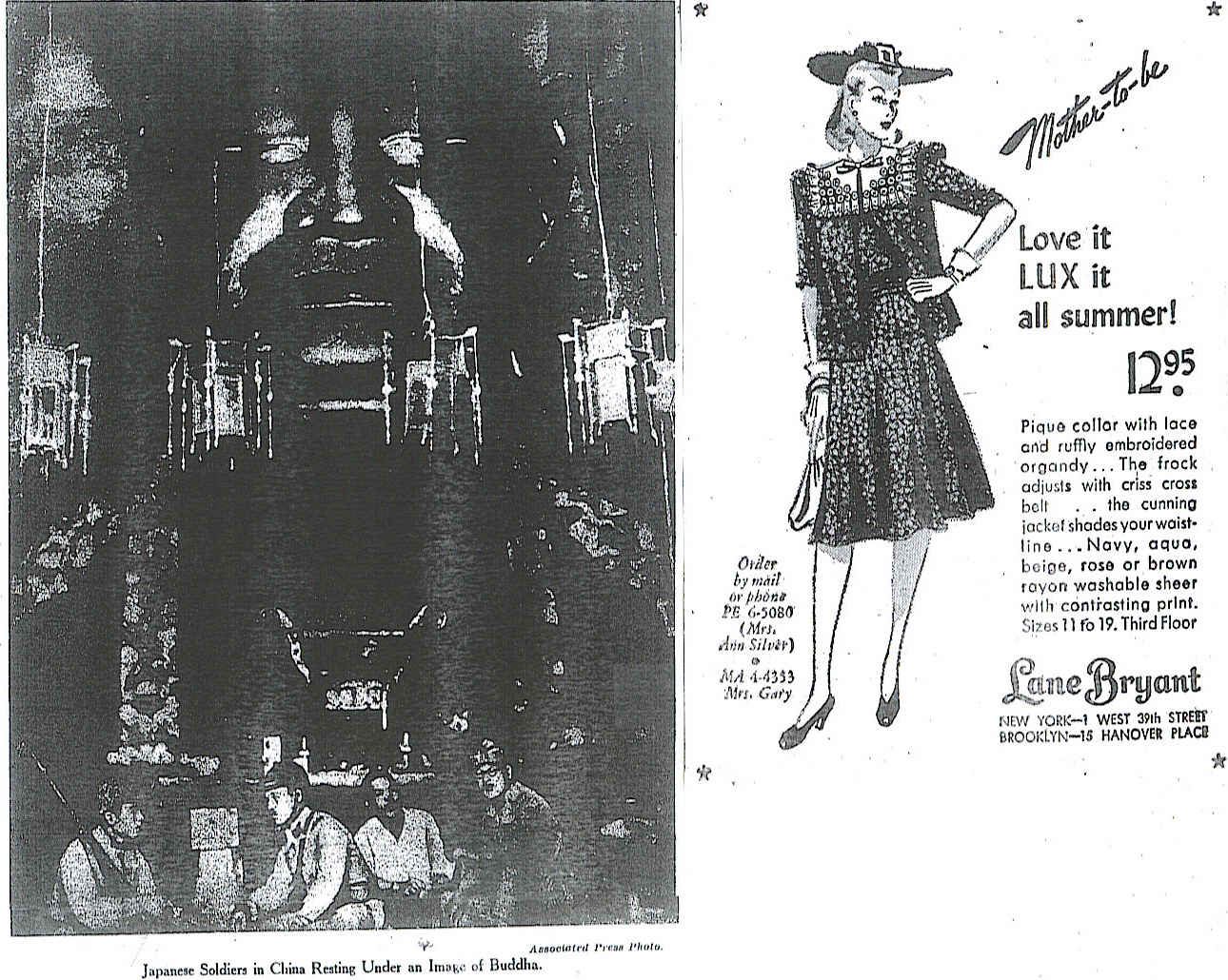
David Stahel. Operation Barbarossa and Germany’s Defeat in the East. Cambridge, MA: Cambridge University Press, 2009. 451 pp. ISBN 978-0-521-76847-4.
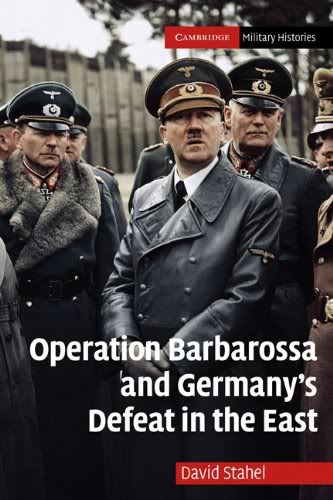 At 3:15 a.m. on June 22, 1941 the skies opened up with the thunderous boom of artillery fire. After months of preparation, the German invasion of the Soviet Union had begun. Though Hitler wouldn’t know it at the time, this was the most fatal mistake he would make in the entire war. The decision to invade the Soviet Union would eventually lead to Germany fighting a two and even three front war as Britain held out and America joined the fray. The Soviet colossus did not crumble as had every other adversary the Wehrmacht had faced and by the end of the year it was clear that they would be in a long and probably losing battle with the inexhaustible mass of Russia.
At 3:15 a.m. on June 22, 1941 the skies opened up with the thunderous boom of artillery fire. After months of preparation, the German invasion of the Soviet Union had begun. Though Hitler wouldn’t know it at the time, this was the most fatal mistake he would make in the entire war. The decision to invade the Soviet Union would eventually lead to Germany fighting a two and even three front war as Britain held out and America joined the fray. The Soviet colossus did not crumble as had every other adversary the Wehrmacht had faced and by the end of the year it was clear that they would be in a long and probably losing battle with the inexhaustible mass of Russia.
Contemporary histories often portray operation BARBAROSSA as the triumphant 1st phase of Germany’s attack on the Soviet Union that had brought the large country to the brink of collapse. They also tend to credit the Russian winter as the event that finally brought the German armies to a stop and in turn saved the Soviet empire. The reality couldn’t be farther from the truth. David Stahel’s book, Operation Barbarossa and Germany’s Defeat in the East is a study of the problems that really had doomed operation BARBAROSSA from succeeding before the invasion even began. Set before the start of the invasion and only tracking events to the end of August that year, David Stahel demonstrates to the reader how the problems that faced the Wehrmacht were insurmountable in light of the resources they had available and the leadership they had to command it. By August, long before the first rains or freezes of autumn, the German army was already at the end of its strength and was truly in dire straights.
David Stahel focuses on two major aspects that led to the German defeat in the east. These points of focus are not only vitally important to understanding the situation for Germany in operation BARBAROSSA, but they are also aspects that are usually ignored by common histories. The first of these issues is with the leadership driving the armies themselves. Much has been made of bad decisions made by Hitler during the course of the Second World War, but more often than not, the German generals who followed his orders are portrayed as brilliant strategist, with their only failings being the burden of trying to follow impossible orders from their Führer. Stahel goes beyond the erratic whims of Adolf Hitler to show the flaws within the leadership of the Germany armed forces as well. From Franz Halder’s manipulations of orders to try and force a move on Moscow (contrary to Hitler’s wishes) to Guderian’s over extension of his lines and even Paulus’ inability to show the flaws in the invasion plans in his pre-invasion war games, the flaws in the German command are shown for the fallacies that they really possessed. David Stahel explains to his readers the infighting, uncertainty, and just poor judgment that plagued the generals of Germany.
The second aspect focused on by Stahel is the logistical nightmare that was operation BARBAROSSA. He shows that even before the invasion began there were already critical shortages on vital supplies including seemingly trivial things like tires for the support vehicles. Once the invasion had begun, problems with supplies only continued to get worse. Stahel demonstrates that not only was the well know problem with the different rail gauges a problem for logistical support of the armies, but it was impossible to make up the difference with the other support means at the Wehrmacht’s disposal. The supply vehicles that would be needed to provide the supplies to the front were too few and to fragile to do the job. The horses that made up a large portion of the supply system as well as for the transport of men and artillery were simply not conditioned for the harsher Soviet conditions and suffered from a very high rate of attrition. Before the autumn rains got equipment stuck, the sandy roads clogged engines, and choked men. As Stahel shows in his analysis of logistical support, not only were many of these divisions not getting new equipment and tanks to replace their losses, they also were not receiving the parts they needed to recondition the repairable fighting vehicles they had. In this Stahel shows how the vaunted blitzkrieg was ground to a halt well before the Russian winter began freezing troops and engines.
The research for this book is extremely detailed. Stahel uses detailed footnotes at the end of each page to not only reference his source material, but to expand on the reference or recommend other sources of information for the particular piece of information. In short, this book has nearly as much “back matter” as it has writing. For this reason, the book reads much like what it likely is. It reads as if it is a doctoral dissertation that is designed to be readily defendable. For the reader of popular histories this book may not have the trappings to keep up their interest. Its attention to detail comes at the expense of leaving out some of the more interesting side notes that you would see in a general history book and some portions of it are a bit dry. However, for those who are really in search of understanding the detail of what went wrong with the German invasion of the Soviet Union, this book will deliver in spades. Another author and expert on the Eastern Front, David Glantz has referred to this book as the “state of the art” on the subject of operation BARBAROSSA and this author would have to agree completely. If you want to understand operation BARBAROSSA and those first critical months of the war in the east, this is the book to get.
CougarGA7
The News of the Week in Review
The Nazi Armies Resume Their March Across the Continent (map) – 10
The German “Luftwaffe” Lands in North Africa (photo) – 11
Twenty News Questions – 11
Strategic Map of the German Drive Against Yugoslavia and Greece – 12
Nazis Make Their Bid for Near East Victory – 13-14
Answers to Twenty News Questions – 14
The New York Times Book Review
Japan Unmasked, by Hallett Abend (reviewed by William Henry Chamberlin) – 16-17
Operation Barbarossa and Germany’s Defeat in the East, by David Stahel (reviewed by CougarGA7) - 18
http://www.onwar.com/chrono/1941/apr41/f13apr41.htm
Japan and USSR sign neutrality pact
Sunday, April 13, 1941 www.onwar.com
In Moscow... The USSR and Japan sign a five year Neutrality Agreement. For Stalin this is an invaluable piece of diplomacy which, backed by secret information from Soviet spies in Tokyo, will allow him to transfer forces from Siberia to face a possible German attack. These moves begin now. The agreement represents a complete change in Japanese policy and marks the growing concern of the Japanese military leaders and statesmen to look south to the resources of the East Indies. The agreement has been negotiated almost alone by Foreign Minister Matsuoka, in Moscow on the way back from a European visit.
In the Balkans... In Greece, the withdrawal to the Mount Olympus position is not yet complete but the British and Greeks decide that they must retreat farther to shorter lines near Thermopylae.
In North Africa... German-Italian attacks on Tobruk are held.
http://homepage.ntlworld.com/andrew.etherington/month/thismonth/13.htm
April 13th, 1941
GERMANY: Berlin: The Wehrmacht High Command announced:
Yesterday the Luftwaffe again inflicted heavy losses in repeated raids on the remains of the Serbian army. Dive-bomber, destroyer and fighter aircraft cut enemy march columns to pieces in the lower Bosnia valley and in the area between the Sava and Drin rivers. Ground-attack aircraft bombed military installations around Sarajevo and scored bomb hits on aircraft stationed on the ground at Mostar airfield. Other Luftwaffe formations blew up Greek troop assemblies at Deskati. In the Lake Prespa area, German fighter planes shot down 6 British Bristol Blenheims. In bomb raids on Piraeus harbour, the Luftwaffe sank four merchant vessels totalling 35,000 tons, badly damaged eight large merchant vessels, and set the harbour installations on fire. During the last two nights, heavy calibre bombs hit a destroyer and 3 large merchant ships in the inlet at Eleusis and outside the port of Piraeus. Another effective high-explosive bomb raid was made on Eleusis airfield.
Berlin: Hitler orders swift mopping-up operations in Yugoslavia and Greece.
U.S.S.R.: Moscow: In a treaty designed to safeguard both parties’ borders, the Soviet Union and Japan today signed a neutrality pact, valid for five years.
By acknowledging existing borders the pact, negotiated by Molotov, give Russian recognition to Japanese Manchuria (now known as Manchukuo) for the first time. Under the pact, should either the Soviet Union or Japan become the object of military action, then the other party will observe neutrality.
The impetus came from Russia, increasingly concerned by the deterioration of its relationship with Germany. In Tokyo the pact was welcomed as guaranteeing Japan’s “back door”.
This means that Stalin can begin troop movements east and that Japan can look south.
YUGOSLAVIA: German and Hungarian troops enter Belgrade.
GREECE: General Wilson decides to withdraw to the Thermopylae line - running from the town of Molos on the Gulf of Euboea east of Thermopylae, to Eratine on the Gulf of Corinth.. This is a naturally strong defensive line, and had the merit of being only 50 miles long (compared with the 100 miles of the Olympus-Vermion line) and could in theory be held by the British troops on their own.
MALTA: The island is heavily bombed by the Luftwaffe.
LIBYA: The Germans capture Sollum and Fort Capuzzo.
ATLANTIC OCEAN: AMC HMS Rajputana on Northern Patrol is lost to U-108 in the Denmark Strait.
http://worldwar2daybyday.blogspot.com/
Day 591 April 13, 1941 (Easter Sunday)
Libya. Rommel has finally received 2 maps of Tobruk’s defenses from his Italian allies (he keeps 1 map and gives the other to 5th Light Division commander General Streich). Rommel decides to concentrate his armour and plan an attack on Tobruk in force, using 5th Light plus Italian Ariete and Trento Divisions from the South at dusk. Allied defenders observe the preparations. After an artillery barrage at 5 PM, German infantry advancing at 5.30 are prevented from blowing the wire and filling anti-tank ditches by accurate British artillery fire. German tanks mill around overnight unable to find gaps to penetrate. Further East, Germans recapture Bardia (unopposed) and Fort Capuzzo, pushing the British out of Libya. Fort Capuzzo has now changed hands 4 times since June 1940.
Balkans. Leibstandarte SS Regiment cuts West through the Metsovon Pass to get behind the Greek Army of Epirus, holding the Albanian front. Too late, Greek Coomander-in-Chief General Papagos realizes the danger and orders a retreat (British General Wilson attributes this to a “fetishistic doctrine that not a yard of ground should be yielded to the Italians”). Italians pursue the withdrawal along the entire front, capturing the towns of Korçë, Permet and Porto Palermo on the Mediterranean coast. Further South, Germans bomb the Greek port of Piraeus sinking Greek destroyer Psara and badly damaging destroyer Vasilevs Georgios I.
In Moscow, Foreign Ministers Matsuoka (Japan) and Molotov (USSR) sign a 5 year Neutrality Agreement. With his Eastern border secure, Stalin transfers forces from Siberia to meet a suspected German attack.
U-108 has tracked British armed merchant cruiser HMS Rajputana for 2 days and missed her with the 5 torpedoes. At 7.43 AM 100 miles West of Iceland, U-108 sinks HMS Rajputana with the 6th torpedo (40 killed, 283 rescued by British destroyer HMS Legion and landed at Reykjavik). At 10.29 PM 75 miles West of Sierra Leone, U-124 sinks British SS Corinthic (2 killed, 37 crew and 2 gunners picked up by Dutch tanker Malvina and landed at Freetown).
8 correct out of 20 for me. That’s about as good as it gets.
“New Nazi Tanks in Use by Nazi Invaders”
It seems to be describing the Saurer. Here is a quote from one of my husband’s tank books:
“The Saurer wheel cum-track Sd.Kfz. 254 was issued only at the beginning of the war. It soon proved mechanically unreliable and was not re-procured.
It was mainly used as a armored observation vehicle for artillery units. A total of only 140 units were in use. “
Below is a link to some photos of the tank.
http://www.panzerphotos.dk/sdkfz254
Very interesting and informative post.
Interesting. Thanks. I was wondering what that was. Some of the newspaper destriptions of what the germans are using are flat wrong but that seems to be what they were talking about.
The Japanese were well within their rights not to declare war on the Soviets since it didn't violate the terms of the Tripartite Pact.
The conditions for military assistance laid out in the Pact was in article 3 which states:
ARTICLE 3. Japan, Germany, and Italy agree to cooperate in their efforts on aforesaid lines. They further undertake to assist one another with all political, economic and military means if one of the Contracting Powers is attacked by a Power at present not involved in the European War or in the Japanese-Chinese conflict.
So Japan only was bound to assist if a currently uninvolved country attacked Germany, not if Germany attacked them. Germany could have done the same with the Japanese attack on the United States which would have put Roosevelt in a real bind since even he knew that he would not be able to call on Congress to declare war on Germany even after the initiation of war by Japan. This is the reason he only called for a declaration of war on Japan in his famous speech. Hitler took care of the rest for him.
It was here that W Force had prepared positions and the Germans came under heavy artillery fire from positions in the hills and to the southeast of Ptolemais. The reconnaissance patrols pushed forward and found the main bridge had been blown and that a water-filled ditch 1.8m (6ft) wide and 0.9m (5ft) deep with soft banks that ran across low ground was an effective anti-tank obstacle.
Under fire from the British the reconnaissance troops from 35rd Panzer Regiment identified two possible axes for advance along minor roads. Closer examination revealed that one was impassable because a bridge had been blown. The other route through marshy ground across drainage ditches was under enemy observation.
Choosing the route through the marsh the German tanks were forced to advance at walking speed and lost seven vehicles that got bogged down. At dusk the surviving German tanks were through and launched an attack at less than 183m (200yd) from the flank on British armour and anti-tank gun positions. Some British tanks were knocked out or abandoned and supply vehicles captured, but the delaying action had been effective.
The Germans halted, low on fuel and ammunition, and waited for the bogged-down tanks to be recovered. The 53rd Panzer Regiment lost two PzKpfw IVs, one PzKpfw II and one PzKpfw I in what was the only tank action of the campaign.
The Balkans And North Africa 1941-1941-Unternehmen Marita-by Will Fowler
"Half an hour passes; we have an early lunch and then we get our first view of the enemy. It's not much different to what we have been watching [he was referring to the British column which shortly before had withdrawn]. Same pace, same intervals, but all armour and a good deal bigger. I count over two hundred as they disappear into the dip on the far side of Ptolemais, where they are apparently concentrating. Two Panzers and a motor-cyclist come down the road to the blown bridge. As they reach it everything opens up on them from our right, streams of tracer, anti-tank shot and machine-gun bullets. The shot ricochets off the Panzers. The cyclist dismounts and starts to take notes. More tracer opens up. I suppose the range is about 1,500 yards. The cyclist remounts and rides quietly back, the Panzers lumbering after him. One seems to be slightly lame. An impressive show"
Hitler As Mititary Commander-John Strawson
Considering the open belligerence the U.S has displayed toward Germany and the actions Roosevelt has taken [lend-lease, destroyers for bases, dividing the Atlantic into defense zones, convoy escort for the Brits, tracking U-boats and sending their positions to the royal Navy, depth charging said U-boats], which under then international law would make the U.S a co-belligerent, Hitler’s decision to declare war on the U.S when he did is not as incomprehensible as it once was.
Three things of interest about North Africa today. The photo of the Me 110s [I didn’t think the Germans would use them as day fighters this late], the way, in their communiques, the Germans refer to ‘German and Italian units’, while the “Eye-ties” refer to “Italian-German” forces, and most importantly, the fact that none of the three players have mentioned Rommel by name. For the Germans, it shows how unimportant, in the larger scheme of things, North Africa is, considering they’ve already mentioned List, Von Weichs and Sperrle in their Balkans communiques.
I certainly wouldn’t describe it as incomprehensible or even unlikely considering the lines that were clearly drawn by now, but he definitely was under no obligation to. It would have been an interesting Congressional fight had he not I would bet.
Good point. The only place I’ve seen Rommel mentioned is in the NYT articles, not the daily communiques.
Make that "The 33rd Panzer Regiment lost two PzKpfw IVs, one PzKpfw II and one PzKpfw I in what was the only tank action of the campaign."
My copy/paste skills start to degrade without my 12 cups of coffee in the morning.
Disclaimer: Opinions posted on Free Republic are those of the individual posters and do not necessarily represent the opinion of Free Republic or its management. All materials posted herein are protected by copyright law and the exemption for fair use of copyrighted works.